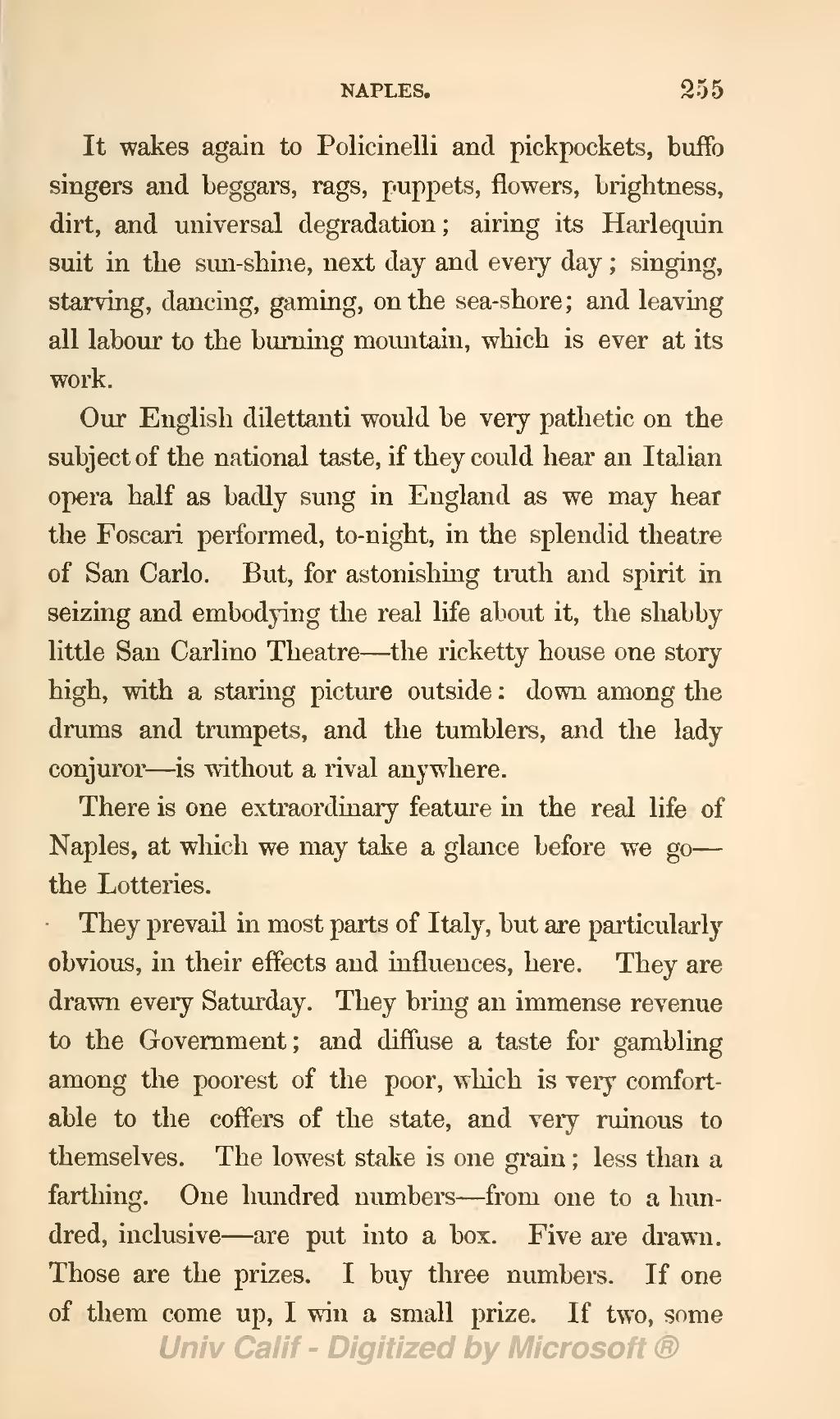It wakes again to Policinelli and pickpockets, buffo singers and beggars, rags, puppets, flowers, brightness, dirt, and universal degradation; airing its Harlequin suit in the sun-shine, next day and every day; singing, starving, dancing, gaming, on the sea-shore; and leaving all labour to the burning mountain, which is ever at its work.
Our English dilettanti would be very pathetic on the subject of the national taste, if they could hear an Italian opera half as badly sung in England as we may hear the Foscari performed, to-night, in the splendid theatre of San Carlo. But, for astonishing truth and spirit in seizing and embodying the real life about it, the shabby little San Carlino Theatre—the ricketty house one story high, with a staring picture outside: down among the drums and trumpets, and the tumblers, and the lady conjuror—is without a rival anywhere.
There is one extraordinary feature in the real life of Naples, at which we may take a glance before we go—the Lotteries.
They prevail in most parts of Italy, but are particularly obvious, in their effects and influences, here. They are drawn every Saturday. They bring an immense revenue to the Government; and diffuse a taste for gambling among the poorest of the poor, which is very comfortable to the coffers of the state, and very ruinous to themselves. The lowest stake is one grain; less than a farthing. One hundred numbers—from one to a hundred, inclusive—are put into a box. Five are drawn. Those are the prizes. I buy three numbers. If one of them come up, I win a small prize. If two, some
